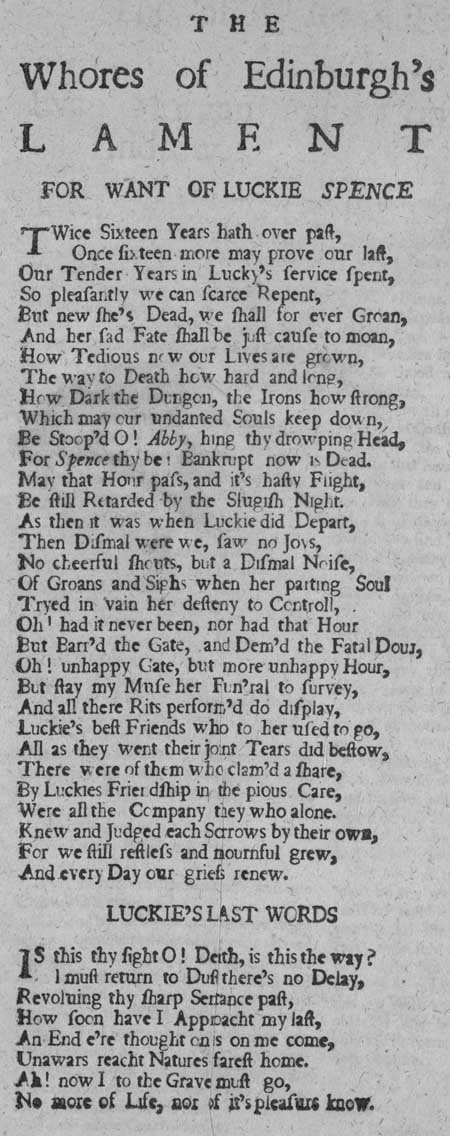Commentary
This lament begins: 'TWice Sixteen Years hath over past, / Once sixteen more may prove our last, / Our Tender Yers in Lucky's service spent, / So pleasantly we can scarce Repent'. At the bottom of the sheet is a short verse entitled 'Luckie's Last Words'. Luckie Spence was a famous Edinburgh brothel keeper. The satire written on her death, 'Lucky Spence's Last Advice', is also in the National Library of Scotland's collection. This piece is more sombre in tone. It is written in the person of Lucky's 'girls', as they bemoan the fact that she will certainly go to hell, and remember the good times they had working for her. Early ballads were dramatic or humorous narrative songs derived from folk culture that predated printing. Originally perpetuated by word of mouth, many ballads survive because they were recorded on broadsides. Musical notation was rarely printed, as tunes were usually established favourites. The term 'ballad' eventually applied more broadly to any kind of topical or popular verse.
View Transcription | Download PDF Facsimile
|
 |
Probable date published:
1718 shelfmark: Ry.III.c.36(136)
 View larger image
View larger image
|


